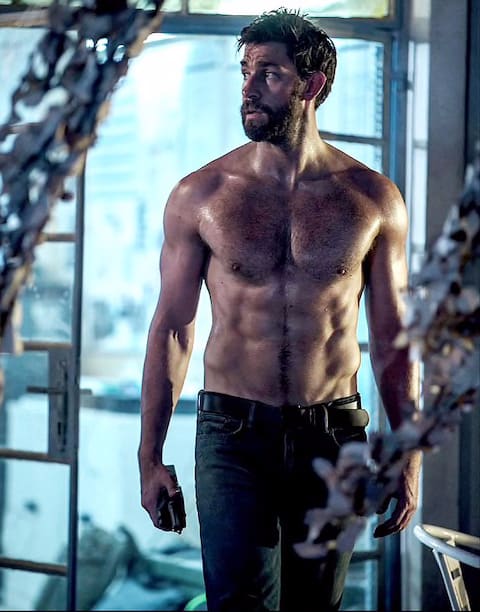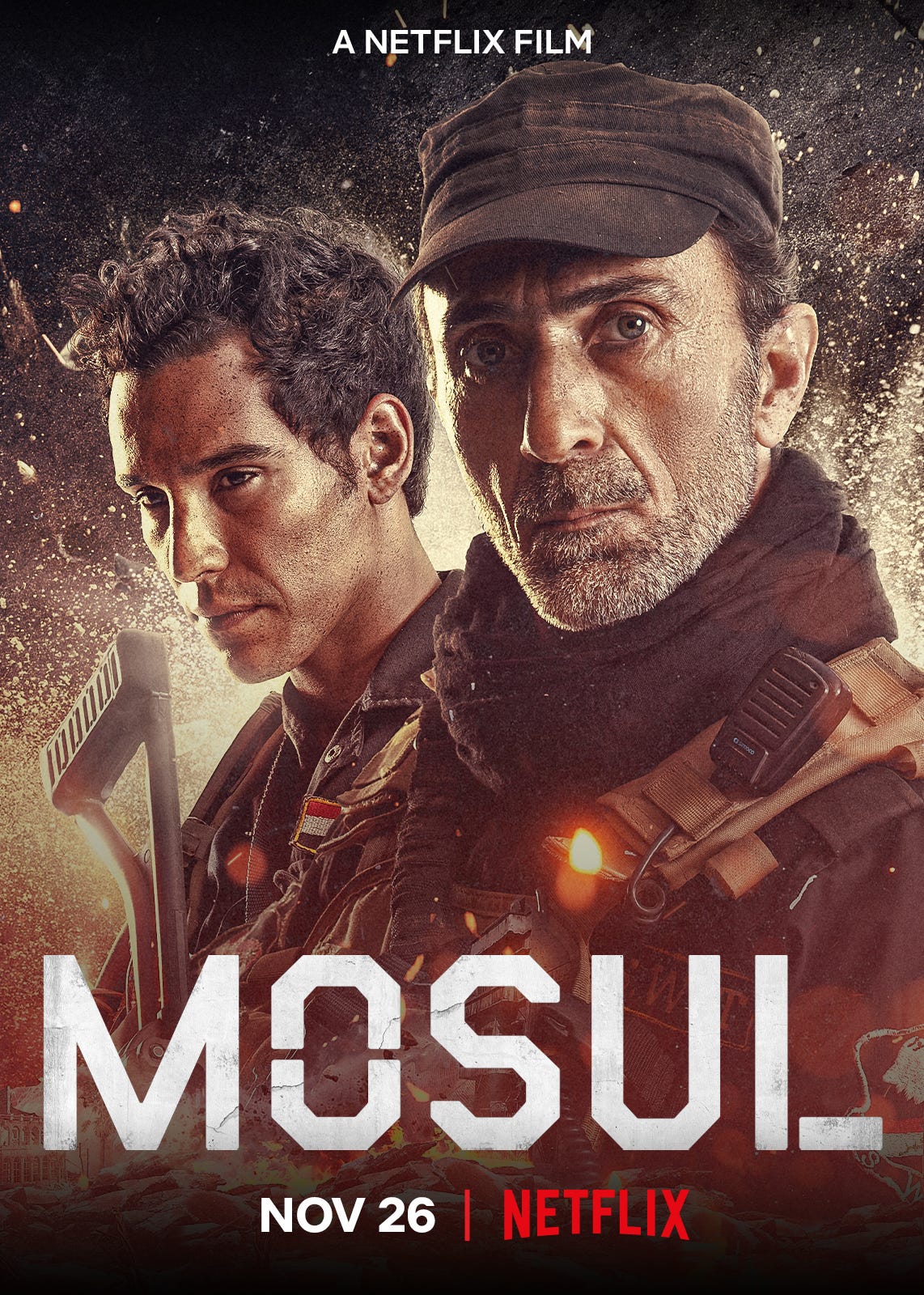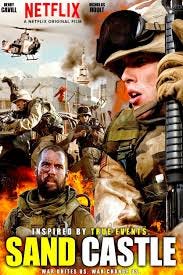The Top 4 Post-9/11 War Movies* (That Aren't Propaganda)
Watch things go boom without cheering endless war.
You’re busy, so here’s a quick look at what JoeWrote this week:
Most modern war movies glamorize American interventions to the point of eye-rolling propaganda.
For those who want some realism with their action, we've ranked 4 war movies that deliver both.
Sound interesting? Keep reading for more.
Despite the right’s whining that Hollywood is too left, nearly every post-9/11 war movie has overtly celebrated America’s military interventions. From American Sniper, to 12 Strong, to (oh boy) 13 Hours: The Secret Soldiers of Benghazi, films of the past twenty years have used rose-colored camera lenses to reduce murky and convoluted developments to bizarrely clean narratives so (insert HGH-filled white actor here) can portray the hero.
But, sparsed between the parade of “here’s why endless war is actually good” films are a few that explore the reality of military action and the immeasurable turmoil leveled atop the soldiers and civilians caught in the invasion carousel. For those who want a more honest telling of 21st-century war (but still like it went things go BOOM!), we’ve ranked the Top Four Post-9/11 War Movies* That Aren’t Propaganda.
1. Mosul (Netflix) — Up first is the most unique, and perhaps the most interesting, on our list. Written and directed by Matthew Michael Carnahan (who also made The Kingdom), Mosul centers on an elite Iraqi SWAT team as they battle ISIS in the war-torn city of (any guesses?) Mosul. Along the way they navigate tedious political allegiances and weigh morality against legality, creating a compelling drama that goes far beyond bang! bang! boom! boom!
What makes Mosul special is that Americans are never on camera, yet the evidence of the U.S.-led invasion that destabilized Iraq and fertilized ISIS is everywhere. From the Humvees our heroes drive, to the M-16s they carry, to their tactical decisions, Mosul never lets the audience forget why this ruined city is ruled by terrorists.
If you’d like a little background, check out this profile of the Iraqi freedom fighters featured in the film. Fair warning though, Mosul is subtitled, so we’re all going to have read eventually.
2. The War Machine (Netflix) — If you want a movie that’s light on its feet with a heavy carry, then The War Machine is for you. Based on a book by journalist Michael Hastings, The War Machine brings us to Afghanistan over the shoulder of General Stanley McChrystal. If that name sounds familiar, it's because he was the general that gave Hastings an unedited view of his inner circle, which turned out to be little more than a drinking club with open contempt for civilian control of the military. (For an explainer on why a military unaccountable to the citizenry is bad, google “Myanmar.”)
Controversy aside, The War Machine scores high because it shows the chasm between McChrystal’s Afghanistan strategy and the reality facing his scared-shitless nineteen-year-old soldiers. Though his screen time is in the single digits, the standout performance of Lakeith Stanfield hammers home the hard truth that no matter how many meetings, press conferences, and presentations McChrystal gave, he (and to be fair, many other U.S. leaders) failed to understand what their still-not-old-enough-to-buy-a-beer soldiers learned on day one — the war was hopeless.
3. Generation Kill (HBO) — If HBO’s Band of Brothers represents World War II — not only in its setting, but in its acclaim — then Generation Kill is the Invasion of Iraq: it’s dirty, gut-wrenching, and America doesn’t talk about it enough. To be clear, Generation Kill is fantastic, but for different reasons than BoB. While BoB shows the defeat of fascism, Generation Kill depicts post-9/11 military actions as energy drink-fuelled frat houses trying to stabilize a nation with millennia-old social, political, and religious dynamics they can’t begin to understand. What the mini-series (I know, I know, it’s not technically, a movie) does exceptionally well is show:
1. What the American military was trained for,
2. What they were faced with in Iraq, and
3. How the delta between those two got a lot of people killed.
Raised on the warrior ethos of kill, kill, kill, our characters lift weights, read Hustler, and are chomping at the bit to“fuck up some hadjis.” Yet, when war comes, combat is rare while civilians are plentiful: the Iraqi people accidentally commute through checkpoints and picnic under falling bombs. By putting us in the shoes of the woefully unprepared grunts, Generation Kill highlights the failure of leadership, both military and civilian, that ruined countless American and Iraqi lives.
4. Sand Castle (Netflix) — While most war movies focus on the macro (say, a general forming a plan to win a war) Sand Castle elects the micro, positing that all the West Point strategy and Raytheon weaponry put into the Invasion was for naught. By telling the story of a squad tasked with repairing the water supply of an Iraqi town, Sand Castle highlights the central facet that doomed the operation before it began — Neither Iraqis nor Americans wanted Americans in Iraq.
We see our characters struggle against tribal dynamics, blurred lines between civilians and combatants, cumbersome military bureaucracy, and even things as minute as outdated machinery as they try to complete the most elementary task of a governing authority, giving the people water. No spoilers, but given the movie is named “Sand Castle”, I’m sure you have a hint of their limited success.
If you liked our list, be sure to subscribe! We’ve got some fun stuff lined up, including:
How Barstool Sports is the Future of Conservatism
Economic Democracy can prevent a repetition of 1/6
I’d love to hear what type of content you want, so please leave a comment or @ me on Twitter.
Before you go, JoeWrote is on The Sample!!! They send you a different newsletter every day, helping you find new content and support writers you enjoy. Sign up here to help us grow!






